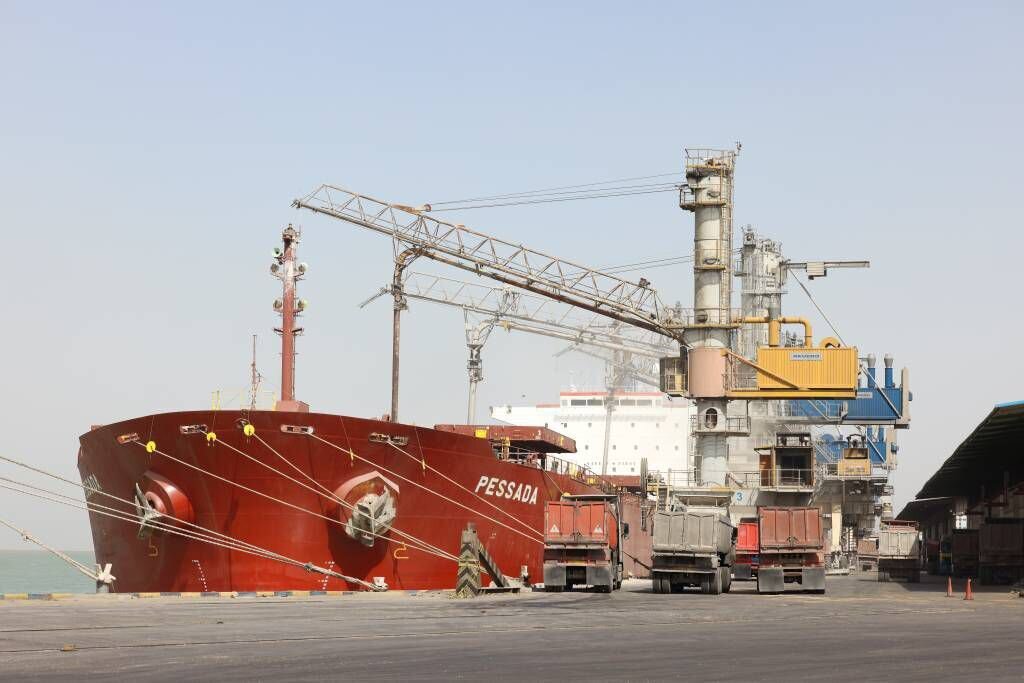Iran’s ports handle 53m tons of cargo in Q1

TEHRAN-Iran’s ports handled a total of 53 million tons of cargo during the first quarter of the current Iranian calendar year (March 21-June 21), according to a report published by the country’s Ports and Maritime Organization (PMO).
Of the total volume, non-oil cargo throughput accounted for 34 million tons, while oil cargo amounted to 19 million tons.
In the same period, unloading of oil and non-oil cargo totaled 16.7 million tons. This included 13.3 million tons of non-oil goods and 3.4 million tons of oil cargo.
Total cargo loadings during this period reached 36 million tons. Non-oil goods made up 20.8 million tons, while oil exports accounted for 15.2 million tons.
Container handling at Iranian ports reached 750,000 TEUs in the first quarter of the year, underscoring the ports’ continued role in regional maritime logistics.
The reported volumes include activity across all state-owned and sovereign ports managed by the PMO, highlighting the organization’s operational capacity across oil terminals and general cargo ports nationwide.
As previously reported by the PMO, Iran's ports handled a total of 234.8 million tons of goods in the past Iranian calendar year 1403 (ended on March 20).
Of this total, 82.3 million tons were unloaded and 152.5 million tons were loaded at the country’s northern and southern ports. Oil products accounted for 103 million tons of the total, while non-oil goods made up nearly 131.8 million tons.
Oil cargo unloading amounted to 28.4 million tons, and non-oil cargo unloading stood at 53.9 million tons. On the export side, 74.7 million tons of oil products and 77.9 million tons of non-oil goods were loaded at ports.
Container handling also saw a notable uptick, with 3.08 million twenty-foot equivalent units (TEUs) processed in 2024—a 13 percent increase from the 2.73 million TEUs recorded in the previous year.
The figures reflect the ongoing expansion of Iran’s port infrastructure and logistics capacity, despite international sanctions and logistical challenges.
MA
Leave a Comment